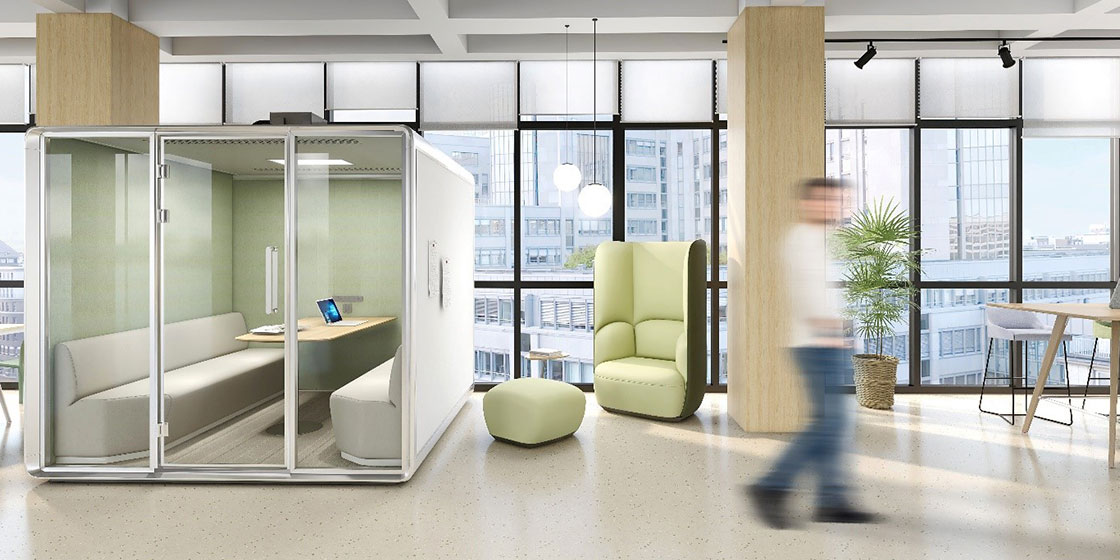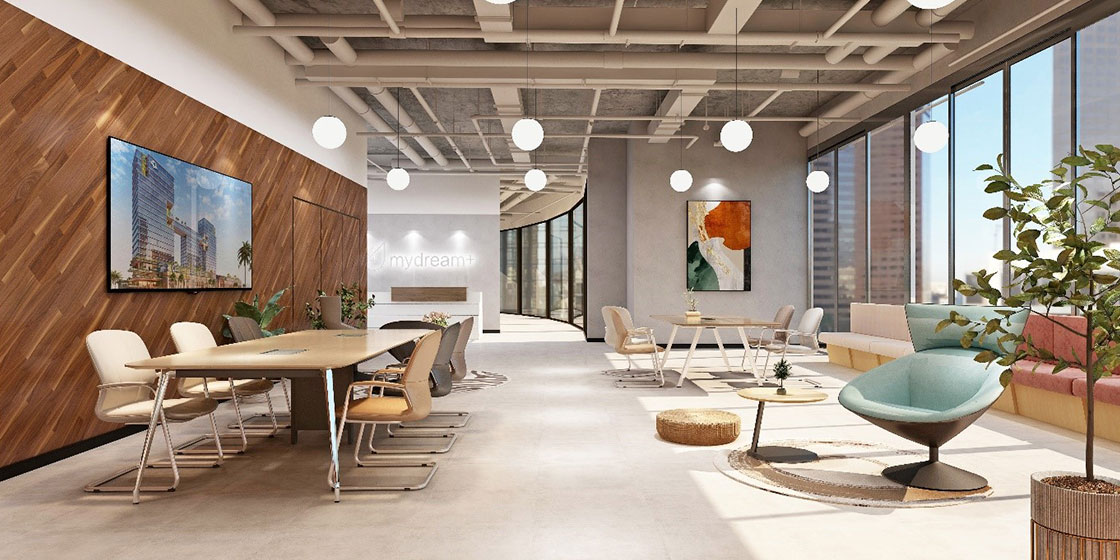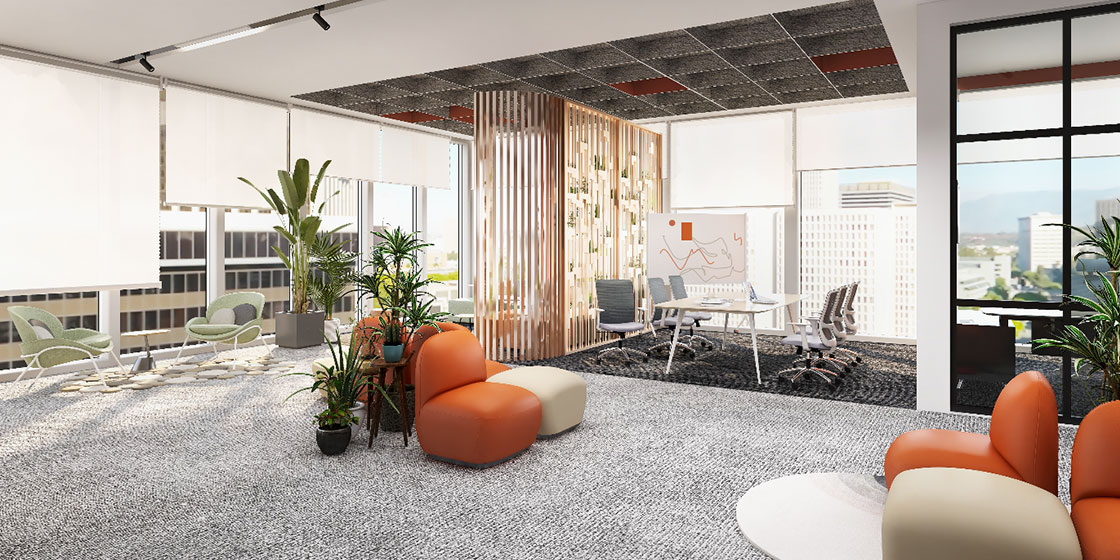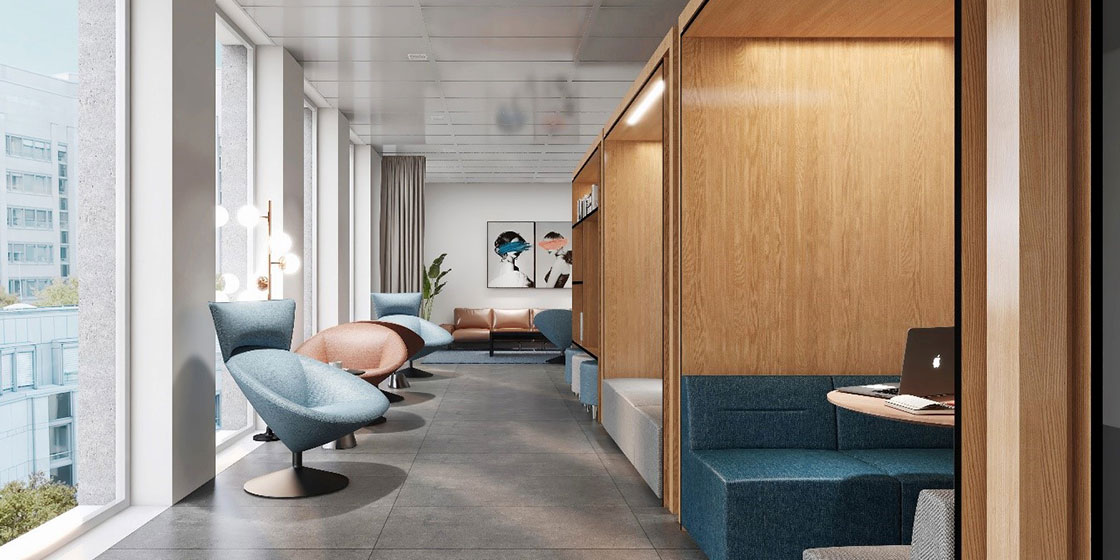
Traditionally, offices were designed for people based on their generation and not their working style. A common misconception is that all baby boomers want cubicles whereas millennials want open spaces. But, this does not hold true. Now, companies recognise the value of offices that create meaningful and functional workspaces for employees with different personality types irrespective of the year they were born.
“How can you make sure that every person feels at home in the office, no matter what their personality?”
“How can an office design promote productivity and accommodate the needs of each and everyone’s working style?”
“Do you wonder why some employees respond better to a certain office layout than others? “
Different people work best in different settings and by incorporating various designs and spaces in the office, you can ensure your workforce is able to work in the way that suits them best. When they are comfortable and satisfied, they also become more engaged and productive.

Myers-Briggs personality types
Myers-Briggs personality test identifies four basic preferences in how we perceive and interact with others. This helps determine where the new employee fits into the workflow, relationships with other workers, and more. The tests were originally derived from Carl Jung’s theories of personality types and have remained popular amongst forward-thinking organizations.
Myers-Briggs personality model is based on 16 types. The preferences are represented by a combination of letters representing traits:
I – Introversion
E – Extraversion
S – Sensing
I – Intuition
T – Thinking
F – Feeling
J – Judging
P – Perceiving
Each preference is dominated by a trait but combines other traits for a well-rounded personality. With combinations of 4 traits, we get 16 personality types. Analyzing and identifying the major personality types within a company can go a long way in designing their ultimate workspaces.
Designing for different personality types
The principles of the Myers-Briggs test are still used today, but personality types have been diluted to the five most dominant traits; extraversion, openness, conscientiousness, agreeable and neuroticism. Based on this concept we will discuss the office environments that are most beneficial to these types.

1. Extraversion
Extraversion denotes the tendency and intensity to which a person seeks interaction with any social environment. Those who are high on extraversion are extroverts and are more social and outgoing. Whereas those who are low on extraversion, are introverts and are quieter and reserved. In the current scenario, it is extraversion that is mostly dictating office design.
Designing for extroverts
Extroverts love to work in an open-plan office that’s dynamic. They also enjoy working in agile offices, where they can be involved in conversation and collaboration, and gain energy and drive from being out and social.
Providing touchdown spaces, brainstorming areas, and cool lounge areas will offer them the opportunity to get out of rigid workspaces and be the best version of themselves – be inspiring and engaging by working together.
Designing for introverts
Many introverts find constant social interaction distracting and draining. Their productivity is directly related to the time and space of having quiet areas in which they can concentrate.
They do not adapt well to hot-desking. They need quiet enclaves and private rooms that block or diminish sound. Cosy corner lounges allow introverts to get away from the social noise without going away in an open-plan office.
2. Openness
Openness to experience refers to one’s willingness to try new things as well as engage with others. They are creative and don’t like routine. They thrive in a flexible working space and tend to be more imaginative and creative. Including touches of nature in these spaces also makes this personality type happy and productive. They appreciate design and want to be in visual spaces, which are flexible and give them a variety of working options.

3. Conscientiousness
Conscientiousness can be described as for people who are organized, disciplined, detail-oriented, thoughtful, and careful. They are goal-oriented and like order. When it comes to performance, but they need the right environment to make them flourish. They are best suited to a traditional setting where they feel most comfortable. They do best with dedicated desks with ample storage, along with the tools they need to do their work and achieve their goals.
4. Agreeable
Agreeable personality types are typically ambivert and fall in the middle of extroverts and introverts. An open workspace also works well for them, encouraging collaborations but they are more susceptible to distraction in open-plan spaces. They are the most adaptable. They enjoy socialising, but also need a quiet space where they can focus, rejuvenate and refresh. Having a working environment that satisfies the needs of both extroverts and introverts, is ideal for ambiverts.
5. Neuroticism
Those who score high on neuroticism are often perceived as moody and irritable. People with these traits usually have a difficult time concentrating, making the right decisions, and feel anxious…which hampers their performance and work. Neurotic people need a balanced environment where they can have their own space but speak to co-workers they feel comfortable with. They do best in a calm environment with their own dedicated desks. Similar to introverts, they need “islands,” of quiet, private rooms, and more for them to work in.

An office for everyone
One design doesn’t fit all. It is important to understand how space impacts cognitive behavior in people with different personalities. This will help you create the right combination of open, closed and social spaces that will fulfill everybody's needs. Considering the different working styles of your employees can be a game-changer when it comes to productivity and employee well-being.